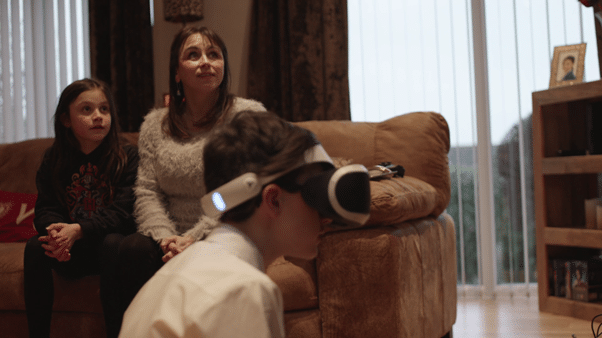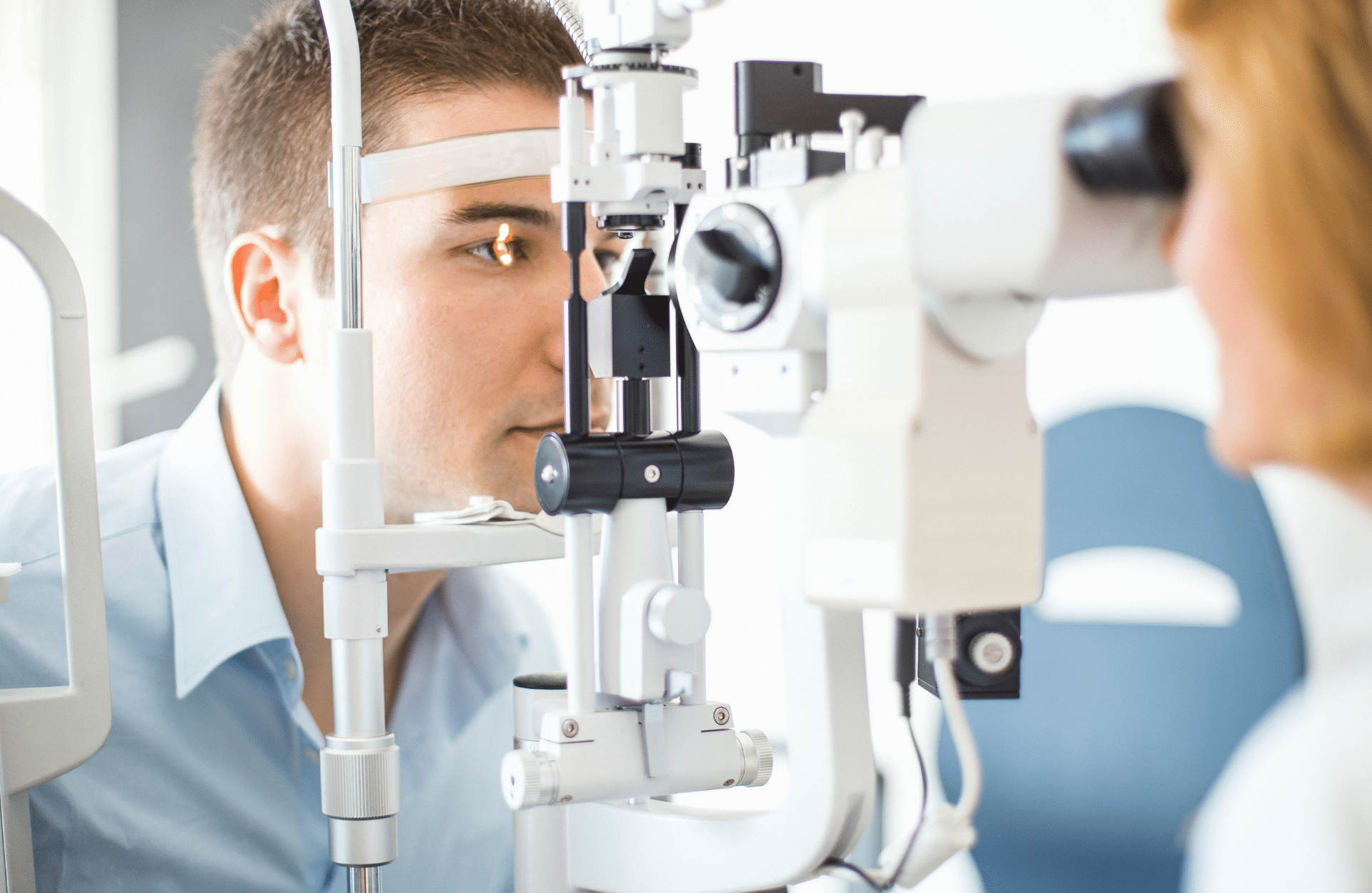
 " alt="">
" alt="">
Delayed Diagnosis Claims

Reviewed by
Peter Rigby - Director of Medical Negligence
We've got your Delayed Diagnosis Claim covered
- No win No fee
- Not just lawyers - real specialists
- No obligation
- UK's highest-rated medical negligence solicitors
The significant backlog in the NHS, across all NHS trusts, has led to an increased demand for services. This has, unfortunately, led to a delay in the diagnosis of many serious illnesses like cancer. Being diagnosed with a serious illness is devastating for you and your family. Knowing that if that diagnosis were made sooner, things might have been different makes it even more distressing. As specialist medical negligence solicitors, we can help you make a claim for delayed diagnosis compensation
Making a delayed diagnosis claim
If you, or a loved one, have been affected by a delayed diagnosis, our team of specialist medical negligence solicitors can help you claim the compensation you deserve. Our dedicated team of legal experts have over 30 years of experience, which means you can put your trust in us to take care of your claim. As the UK’s top-rated medical negligence law firm, we can help you understand:
- What it means to suffer a delayed diagnosis and how this can impact you
- Whether or not you have a delayed diagnosis compensation claim
- How running a claim works and how we go about proving your claim
- The amount of compensation you could win and how it is calculated
Find out if you
have a claim
Take the 10-second claim test
Free Advice
03300 080 352
claim form
We're the highest-rated No Win No Fee medical negligence solicitors on Trustpilot
What is a delayed diagnosis claim?
A delayed diagnosis, or misdiagnosis, are probably the most common forms of medical negligence a patient can suffer.
This means being the victim of:
- An unnecessary delay in diagnosing an injury or disease
- A late diagnosis that leads to fewer treatment options, a need for surgery that could have been avoided, a worse outcome, or even a reduction in life expectancy
- The incorrect diagnosis and unnecessary treatment of an illness or injury that you never had
If you have been diagnosed with an illness and believe, or have been told, that that illness could have been diagnosed sooner, you may have experienced this type of medical negligence. In this case, you could make a claim for delayed diagnosis compensation.
Examples of delayed diagnosis
Some illnesses are more commonly misdiagnosed, resulting in a late diagnosis, than others. Some of the most misdiagnosed illnesses are:
Cancer – many types of cancer are diagnosed after a significant delay due to symptoms looking like something else. Lung cancer for example may be diagnosed as a less serious respiratory illness.
Parkinsons – the tremors associated with Parkinsons can be put down to a stroke or even a head injury
Multiple Sclerosis – there is no one test to diagnose MS and this can make a timely diagnosis harder.
IBS – IBS, and also celiac disease, is often misdiagnosed as more temporary gastrointestinal illnesses.
Heart attack – heart attacks have been explained away as heartburn or indigestion at their onset
Stroke – stroke symptoms may look like a seizure or even be treated as a migraine at first
Sepsis – a delay in diagnosing sepsis can be life threatening, as can a delay in diagnosing meningitis
Whilst these are some of the cases that we handle regularly, there are many other conditions that GPs, consultants and specialists do not diagnose early enough. The majority of medical professionals do provide the very best care, but when there is a failure to do so, you are entitled to claim compensation that can help you recover from a delayed diagnosis.
Consequences of a delayed diagnosis
Early detection of an illness or injury nearly always means a better outcome. The consequences of a delayed diagnosis will vary according to the illness but in some cases, the outcome could be life threatening. The possible outcomes of a delayed diagnosis can be:
- Additional healing time and loss of earnings for even minor fractures that took longer than necessary to diagnosis
- The progression of a cancer from an early stage to a later stage, or the cancer spreading to other areas
- A genuine threat to life if a virus like sepsis or meningitis goes untreated.
- Paralysis, for example stroke patients who have not had their symptoms acted on fast enough
- Amputation for sufferers of diabetes or cancer.
There are many consequences following a delayed diagnosis, which is why we take it very seriously and want to help our clients as much as possible by pursuing compensation and helping them to access the support they need. Just like our client, who suffered a delayed diagnosis in relation to an eye complaint and was left with only 5% vision because he was not treated straight away.
How do I know if I can claim?
Medical professionals, including GPs, can sometimes miss the signs of a serious medical condition or injury, or mistakenly diagnose you with an injury or illness that you do not have. We have helped thousands of people get help after a delayed diagnosis and the most common cases we see include:
- A hospital misinterpreting your symptoms and failing to diagnosis an injury or illness
- A diagnosis of an injury or illness that you do not have
- The incorrect reporting of test results, or failing to advise you of important test results
- GPs failing to diagnose an illness or injury in a reasonable amount of time
- GPs failing to refer you for specialist review
- GPs rationing blood tests during the pandemic which leads to further delays
- Prescribing the wrong medication
- Being “lost to follow up,” where you are not advised of appointments you needed to attend, or sent for tests you need to diagnose you
To prove delayed diagnosis, we use the 4 Ds of medical negligence. These are duty, dereliction, damages and direct cause. It must be shown that a healthcare professional failed in their duty of care and this directly caused any damages, including financial losses and physical and emotional distress.
What can I expect?
The impact of a delayed diagnosis will be different for every patient and their family. In the worst cases, families are left to pick up the pieces after a tragic and avoidable loss. When we take on your case, we will gather all of the relevant information to make sure we get the maximum amount you are entitled to and that can go some way to helping you recover. Compensation can help with:
- Private medical bills
- Rehabilitation
- Palliative care, particularly for terminal illnesses like cancer
- A loss of earnings, either your own or your family member who has had to care for you
- Any adaptations to your home or your car
- Travel expenses to additional appointments
- Aids such as wheelchairs, prosthetics or breathing equipment
- Pain and suffering associated with your delayed diagnosis
We will work hard to ensure that the compensation received supports your future quality of life. Therefore, ahead of any settlement agreed, we’ll always try to answer any questions around future care costs or treatment you may have.
Why Choose Us
Patient Claim Line has been pursuing claims for delayed diagnosis and misdiagnosis for over 30 years. We understand every second your diagnosis was delayed is time you can’t get back, and so we handle every case with compassion, care and complete diligence. We have over 100 UK based solicitors who specialise in medical negligence laws and have worked on, and won, thousands of cases just like yours. Our aim is to get you the settlement you deserve in a timely manner so that you can get on with your life with the help, support and resources you need.
No Win No Fee Delayed Diagnosis Claims
If a delayed diagnosis has caused you and your family pain, suffering and uncertainty, the last thing you want to worry about is paying for a solicitor. Our no win no fee promise means you don’t pay us anything at all unless we win your case. Even if we take on your claim and complete the investigation, but do not win, you still pay absolutely nothing if you have cooperated with us to manage your claim. Your final fee will be explained to you before you sign anything so that there are no surprises at the end. We are rated excellent on Trustpilot because our client’s wellbeing is what matters to us most.
Why Choose Patient Claim Line for your Delayed Diagnosis Claim?
Not just lawyers — medical negligence experts
Patient Claim Line was established in 2014 and consists of a team of medical lawyers specialising in cancer negligence and general medical negligence claims.
At Patient Claim Line we have more than 100 solicitors with a combined experience of over 400 years and they will work on your behalf to achieve the best result possible for you.
It’s not enough to use a solicitor who sometimes covers medical negligence. You need someone who knows this area through and through. That is what the solicitors here at Patient Claim Line do. They deal exclusively in this area of law and are experts in the field.
Frequently asked questions about Delayed Diagnosis Claims
Our expert legal team answer your questions about making a Delayed Diagnosis Claim
You may be able to sue the NHS if you believe you have experienced a delayed diagnosis which has impacted your medical condition. Working with an experienced medical negligence law firm means you have someone fighting on your behalf who will strive for the best compensation settlement. If suing the NHS feels daunting, there is the option of a “litigation friend”. This is normally a close family member or a spouse. Your solicitor will be able to liaise with your chosen individual for you, so this is one less thing to worry about.
With complex conditions, you should be offered an appointment with a specialist within 2 weeks of your General Practitioner (GP) making the referral. However, it can sometimes be difficult for medical professionals to work to an exact time frame when delivering a diagnosis. If you visit your local GP with health concerns, they have a duty of care to thoroughly investigate, and if necessary, refer you for a specialist consultation.
You have three years from the date you found about the delayed diagnosis to make a claim. To make a claim you will need to provide information about what happened to you and supply any evidence of the damages, such as financial losses like time off work or travel costs. Using a specialist medical negligence solicitor with experience in delayed diagnosis claims is the most efficient and through way to start your claim as they understand the process inside and out and know how to get the settlement you deserve.
If you are making a claim for delayed diagnosis compensation then the other party must prove that they were not liable. When you start your claim, you will be asked a series of questions so that your lawyer can understand exactly what happened. They will then tell you if you have a case or not. If you do, then your solicitor will be able to access your medical records to establish the chain of events and will carry out a thorough investigation. You will not need to actively prove anything yourself but can put your trust in your legal professional.
Meet our Delayed Diagnosis Team
Case Study
Sarah's Story
"Now we have peace of mind"
My husband, Nick, went back and forth to the doctors for a long time and tried everything the doctor recommended. But his illness got worse, to the point that he was in agony.
In the end we got so desperate that we asked for a referral. The doctor was reluctant, so we had to consult a private hospital. That’s when we found out there was a tumour. It took years from the onset of his illness to finally start cancer treatment.


He used to be a man with a lot to live for, but in the end he was in so much pain that he withdrew from the family. He became angry that nobody had helped him sooner, and the legal team were able to give him the validation that he was desperately seeking. The NHS confirmed if they had done more, Nick would still be alive today.






